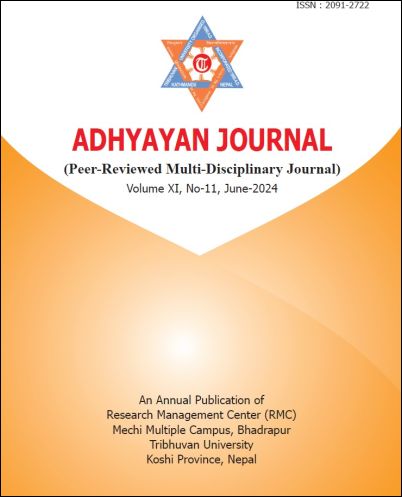Role of Knowledge Management Practices in the Economic Performance of Nepalese IT Companies
DOI:
https://doi.org/10.3126/aj.v11i11.67073Keywords:
Information, information technology, knowledge management, Performance, technologyAbstract
Organizations are spending substantial resources on information technology (IT) to support the capture, storage, sharing, and retrieval of knowledge as knowledge management (KM) emerges as a fundamental management responsibility. Information systems (IS) development and maintenance inside businesses rely heavily on knowledge management (KM). The major goal of this research is to evaluate how knowledge management strategies affect the organizational performance of Nepalese IT enterprises. A total of 316 respondents’ information has been collected from the Ten IT companies in Nepal. A convenience sampling technique is used to select the sample. A descriptive survey is used as the research design for this investigation. Surveys questionnaires were distributed to gather primary information from the respondents.Both descriptive and inferential statistics were used to analyze and interpret the results. It was found that all independent factors have a positive correlation with perceived organizational performance in IT companies in Nepal, demonstrating their influence on both. Independent variables have also affected how Nepalese IT businesses are considered to be satisfying the employees.




